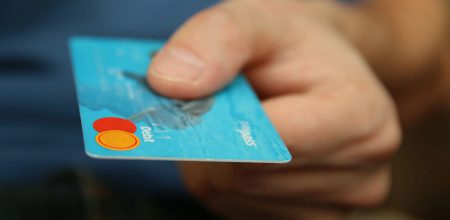Tips on credit repalr ? What is credit repair in the first place, and why is it important? Regaining the favor of creditors is the process of credit repair. It is crucial to understand how to accomplish it since without it, you won’t be able to borrow any money. Here are a few tips on credit repair to give you a basic idea of what credit repair entails and how to approach it.
Get a Copy of Your Credit Report
Obtaining a copy of your credit report is the only way to determine how dire the problem is, so that’s the first step. By contacting any of the three credit agencies—Equifax, Experian, and Trans Union—you can obtain information for free.
Sending a letter together with the necessary documentation will take care of any discrepancies in your credit report that you know have already been rectified.
In your credit report, you will find a comprehensive overview of your credit history, including details about your credit accounts, payment history, and outstanding balances. This information is vital for lenders and financial institutions to evaluate your creditworthiness when you apply for loans or lines of credit. Additionally, your credit report contains personal information such as your name, address, and Social Security number to verify your identity.
One crucial component of the credit report is the list of inquiries made by potential creditors or lenders when you apply for new credit. These inquiries can have an impact on your credit score as frequent applications may indicate financial instability or high debt levels. Understanding the types of information included in your credit report can empower you to take steps towards improving your financial health through strategies like responsible borrowing and timely repayments.
Furthermore, if there are errors or discrepancies in your credit report that may be negatively affecting your score, it is important to address them promptly through the process of credit repair. By regularly monitoring and reviewing the information in your credit report, you can proactively manage any issues that may arise and work towards achieving a healthier financial profile in the long term.
Arrange to Pay off Creditors
However, if the credit report is accurate, the only way to repair credit is to pay it off. Speak with your creditors and see if you can come to an arrangement that will let you pay the outstanding balance over a longer period of time.
If they consent, make sure to get their signature on it so you have documentation in case they decide to change their minds.
One of the key creditors you may have to negotiate with when trying to repair your credit is credit card companies. If you have high credit card balances or missed payments, working directly with these companies to create a repayment plan can help improve your credit standing. Negotiating for lower interest rates or settlement amounts may also be possible.
Another important creditor in the process of repairing your credit is lending institutions, such as banks or mortgage lenders. If you have outstanding loans or are behind on mortgage payments, communicating with these creditors and showing a willingness to pay down debts can lead to more favorable terms and potentially prevent further damage to your credit score. It’s crucial to approach these negotiations with a clear plan and demonstrate responsible financial behavior in order to successfully repair your credit profile.
Consider a Credit Restoration Service
If you find it difficult to communicate with your creditor, consider hiring a credit restoration business to mediate the situation instead of giving up. Two of the many advantages of speaking with experts include shorter payment and interest terms.
Change Your Spending Habits
Since money is always a problem, be prepared to make some sacrifices and cut back on spending because credit rehabilitation takes time. Should your income prove insufficient, you could need to liquidate certain assets and treasures.
Even with outstanding debts, borrowers still need to be able to cover other expenses. These could incluce their mortgage and other payments. The situation itself is akin to waging a multi-front campaign that keeps attacking. It is hard to stop it as missing additional payments will just exacerbate the situation.
Nobody ever said you couldn’t use your credit card while you were working on repairing your credit. Actually, you can still use it as long as you remember not to max it out like you did previously. 30% of your credit score is derived from the ratio of your total credit to debt.
Once your credit score has increased, don’t stop working hard. Apply for a secured credit card and a department shop credit card simultaneously.
Say NO to Bankruptcy
In terms of credit rehabilitation, bankruptcy is never an option. This is due to the fact that your record will be kept on file for ten years. During which time interest rates will continue to rise and the total amount of debt you owe will only increase. It’s like taking a nosedive.
Going Forward
The suggested credit repair advice is simple to implement for everyone. Make sure you have the ability to pay off your debt once you begin doing so. That way you can get back into the black.
Is it simple to restore credit? Not really, as a lot relies on how much you owe your creditors. Some people owe a thousand or two, but for others, the amount is much larger, and that presents a serious issue.
Thus, assess your circumstances, make the necessary credit repair arrangements, and ensure that this doesn’t happen again.
Disclaimer: This information is for educational purposes only and does not constitute professional financial advice. Please consult with a qualified financial advisor for personalized guidance.
FAQs
What do you mean by creditors and debtors?
A “creditor” is a phrase used in accounting to describe a party that has provided something to another. It could be a loan, good, or service and is owed money by one or more debtors. The person or thing that owes money is referred to as a debtor, which is the opposite of a creditor.
What are the 4 Cs of credit score ?
There are four major categories: conditions, capital, capacity, and character.
What makes up the largest portion of your credit score ?
How is your credit score determined?
35 percent of your score is determined by your payment history.
Thirty percent of your score comes from the amount you owe on your credit cards and loans.
Fifteen percent of your score is determined by the duration of your credit history.
Ten percent of your score is based on the kinds of accounts you have.









